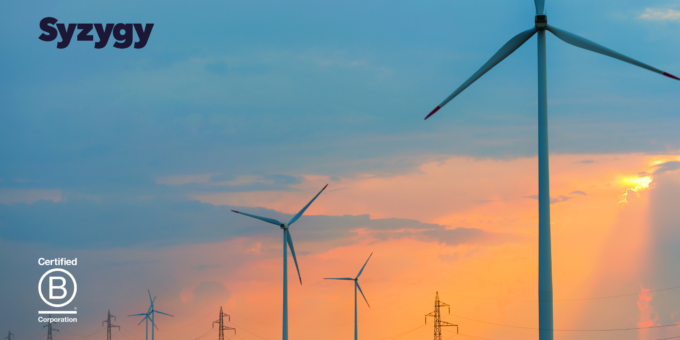Last week, the Syzygy team attended the REA Decentralised Energy Conference, where industry leaders, policymakers, and innovators convened to discuss the future of decentralised energy. This thought-provoking event highlighted challenges, opportunities, and emerging trends shaping the energy transition. Here are the key takeaways we believe are crucial for our industry and partners.
Real Estate: The Emerging Energy Providers
A recurring theme at the conference was the growing role of real estate businesses as energy providers. As new market entrants navigate this uncharted territory, they face the daunting complexity of long-term Power Purchase Agreements (PPAs) and intricate energy supply chains. Clear guidance is required to make informed decisions. This shift underscores the importance of collaboration and specialised expertise to ensure real estate entities can thrive in this evolving landscape.
The Demand for Simplicity in Energy Technologies
Future energy technologies must prioritise user simplicity and automation. Conference speakers emphasised that if systems demand active engagement or extra effort, adoption rates will remain low. For decentralised energy to succeed, solutions must be effortless and seamlessly integrated into daily operations.
The Role of Batteries
Batteries were a hot topic, with discussions around their versatility as tools for maximising onsite energy generation, peak shaving, and providing backup power. While battery costs for commercial and industrial (C&I) applications remain slightly higher than residential systems, they are rapidly declining. Market changes such as P415 - enabling wholesale energy trading via virtual aggregators - offer exciting prospects, though adoption faces hurdles due to concerns around loss of control.
Barriers and Enablers for Decentralised Energy
Barriers to decentralised energy adoption remain significant. Grid constraints, high upfront costs, and the complexity of transitioning to new systems are major hurdles. Additionally, electricity costs remain higher than gas, and there’s a lack of infrastructure for electric vehicle (EV) charging and heat networks.
However, the conference also showcased enablers driving progress. Collaboration between landlords and tenants, increased focus on ESG goals, and automation of technologies are paving the way forward. Education for market newcomers and enhanced operational control networks were highlighted as key tools to overcome barriers.
Looking Ahead: Policies and Innovations
The energy landscape will be shaped by upcoming policies such as the Smart Systems and Flexibility Plan (SSEP), Local Power Plan, and Zonal Heat Networks. Standards like ISO 15118 for EV plug-and-charge systems also promise to drive efficiency and user convenience. These developments, coupled with continued innovation, will play a critical role in steering the industry towards a sustainable future.
Final Thoughts
The REA Decentralised Energy Conference highlighted the challenges and opportunities of our evolving energy landscape, reaffirming Syzygy's mission to deliver clarity, collaboration, and innovation in decentralised energy. We are proud to lead this transition, offering tailored solutions like battery storage, EV charging infrastructure, onsite generation, and microgrids to help our clients stay ahead.
At Syzygy, we simplify the complexities of decentralised energy, empowering businesses to embrace a smarter, more sustainable future.
Contact us today to explore how we can support your energy transition goals!
projectmanagement@syzygyconsulting.eu
businessdevelopment@syzygyconsulting.eu
evcharging@syzygyconsulting.eu
pvassetmanagement@syzygyconsulting.eu




